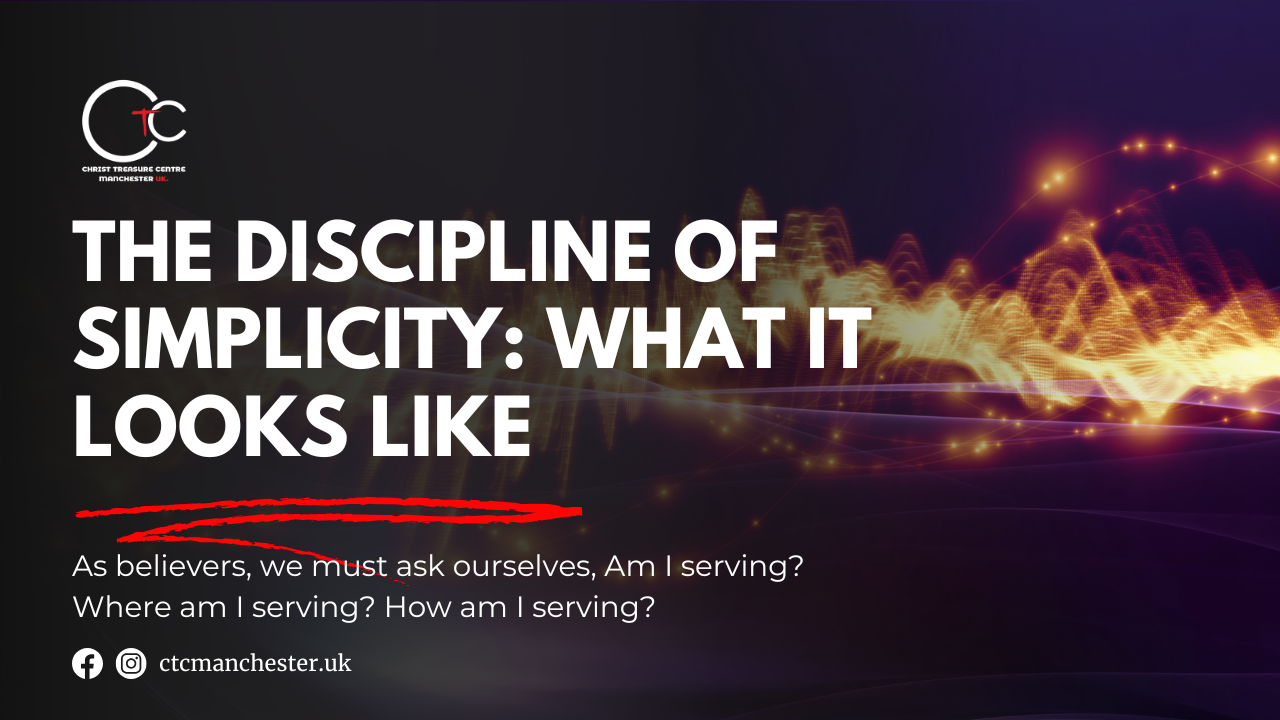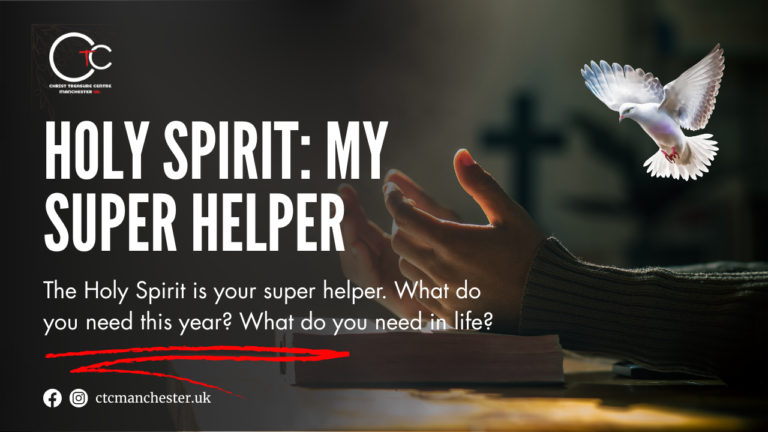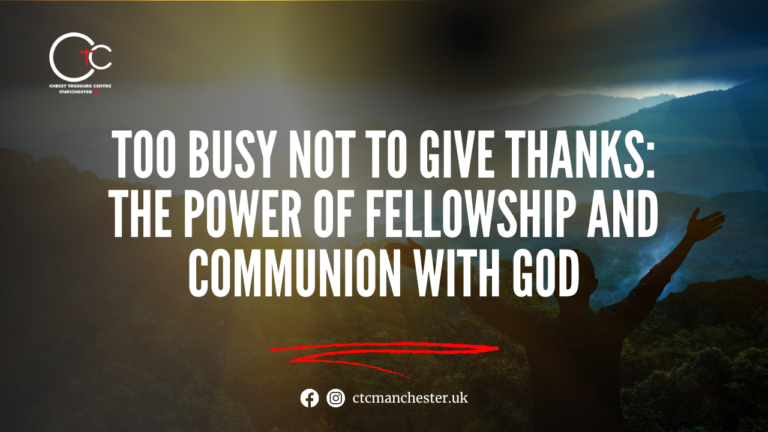We live in a world that celebrates more, more possessions, more money, more opportunities, more activities. But Jesus often calls us to less, so that we can be more available to God.
Take care, and be on your guard against all covetousness, for one’s life does not consist in the abundance of possessions.
Luke 12:15 (ESV)
Simplicity is not about being poor or giving everything away. It’s about being free — free from the weight of things that compete for our attention and affection.
Possessions themselves aren’t the problem; it’s our heart toward them. Abraham had great possessions, but they didn’t control him. This was shown when he let Lot choose the best land first and took what was left (Genesis 13).
There is one who scatters, yet increases more; And there is one who withholds more than is right, But it leads to poverty. – Proverbs 11:24
1. The Discipline of Simplicity
Simplicity is the intentional practice of removing distractions so we can seek Christ first.
Seek first the Kingdom of God and His righteousness, and all these things will be added to you. – Matthew 6:33
Simplicity reminds us that God not possessions, not schedules, not wealth is our treasure.
Where your treasure is, there your heart will be also. Matthew 6:21
Simplicity begins inside and flows outward. It’s an inward reality that results in an outward lifestyle.
2. The Inward Dimension of Simplicity (Heart, Identity, and Trust)
True simplicity begins in the heart, not with decluttering closets or cancelling plans.
Begin now to obey Him in every way you can. Start right where you are.
a. Simplicity Begins with Obedience
We don’t wait until we feel ready. When Jesus called His disciples, He simply said, “Follow Me.” (Matthew 4:19)
A heart of simplicity prays:
“Lord, I will obey You today with what I already know.”
b. Three Heart Questions to Ask
- What controls my time?
Am I too busy to pray? Too busy to serve God? - What controls my possessions?
Do I own things, or do they own me? - Where is my heart?
Jesus said, “You cannot serve both God and money.” (Matthew 6:24)
c. The Inward Fruit of Simplicity
When we surrender our heart to God, we experience freedom:
- Freedom from comparison — Galatians 1:10
- Freedom from anxiety — Philippians 4:6–7
- Freedom from greed — 1 Timothy 6:6–8
A man once owned many expensive watches. He spent more time protecting them than enjoying them. When he gave some away, he said, “Once I gave them away, they stopped controlling me.”
Simplicity frees the heart.
3. The Outward Dimension of Simplicity (Lifestyle)
When the heart is simple, the lifestyle follows.
Simplicity is freedom — freedom to live with focus and peace.
Outward Expressions of a Simple Life
- Clear priorities
Jesus often withdrew to pray (Luke 5:16).
Ask: Do my priorities match my calling? - Fewer possessions
“Be content with what you have… God is with you.” — Hebrews 13:5
Jesus owned little but changed the world. - A simpler schedule
Not everything good is necessary.
“There is a time for everything.” — Ecclesiastes 3:1 - Generous living
The early church shared what they had (Acts 2:44–45). - A focused life
“One thing I do…” — Philippians 3:13–14
Practical Ways to Live Simply
- Give your resources — time, money, talents.
- Practice delayed gratification — pause before buying.
- Declutter — bless someone with what you don’t need.
- Keep a Sabbath rest — stop and worship intentionally.
- Limit commitments — say no to what distracts from God.
“The more you own, the more likely your things own you, if your heart isn’t right.”
4. Invitation and Application
“Let us examine our ways and return to the Lord.” Lamentations 3:40
Reflection Questions:
- If you lived more simply, how would that change your walk with God?
- How would it affect your service, relationships, family, peace, and finances?
Weekly Challenges
Choose one area to simplify this week:
- Simplify one area to spend more time with God.
- Give away something that hinders you.
- Remove one unnecessary commitment from your schedule.
- Set aside daily quiet time for prayer and listening.
- Share your simplicity goal with someone for accountability (Ecclesiastes 4:9–10).
We resist the pull of materialism together, not alone.
Conclusion
Simplicity is not deprivation; it is liberation. It is the freedom to live centered on Christ.
Jesus is our example. He owned little but lacked nothing. The early church lived simply and they transformed the world.
Final Challenge
Will you embrace the discipline of simplicity?
Will you seek first the Kingdom of God?
Will you live with less, so you can give more?







